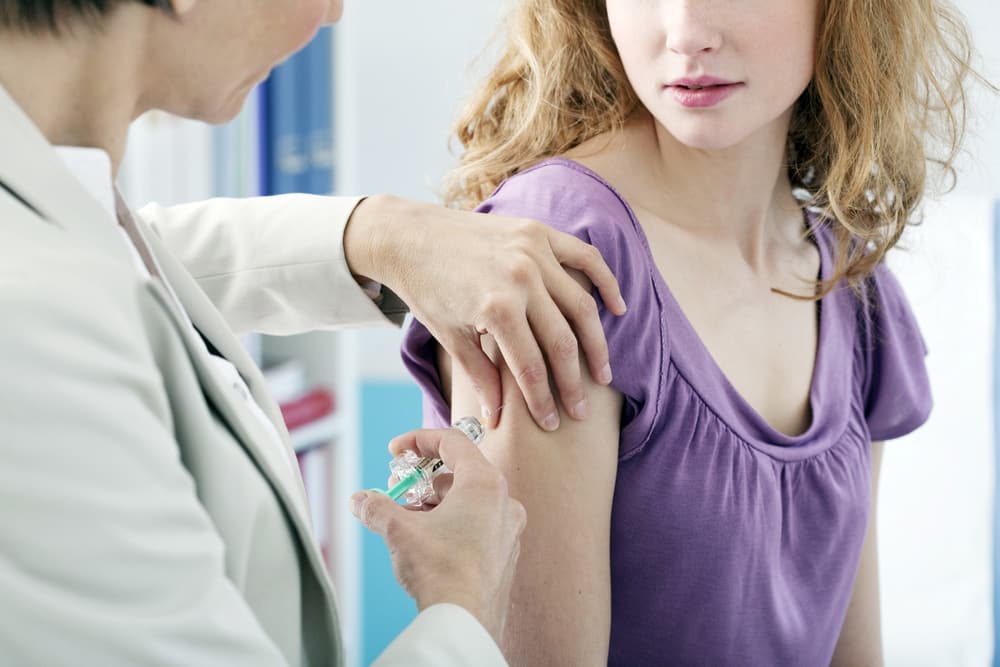Earlier this month, the United States reached a crucial milestone: Per the Centers for Disease Control and Prevention (CDC) website, 55 percent of the U.S. population has been fully vaccinated against COVID-19. That percentage includes approximately 182.5 million Americans who have received two doses of either the Pfizer or Moderna vaccines or one dose of the Johnson & Johnson vaccine. And, given the recent vaccination mandate for government employees and employees of large companies, that number could grow much higher in the coming months. This data is promising; however, a significant portion of the population remains unvaccinated, leaving them vulnerable to severe COVID-19 symptoms. Read on to learn more about COVID-19 symptoms in the vaccinated vs. unvaccinated.

COVID-19 Symptoms in Vaccinated Individuals
While COVID-19 cases in fully vaccinated people are rare, they can happen. But a recent study published in The Lancet Infectious Diseases found that, if a vaccinated person were to catch COVID-19, the risk of long COVID – a condition involving extended severe COVID-19 symptoms – was reduced by almost half. The study also found 73 percent fewer hospitalizations in vaccinated individuals and established that vaccinated individuals are 31 percent less likely to develop “acute symptoms.” Overall, fully vaccinated individuals with COVID-19 had milder, less frequent symptoms than unvaccinated individuals. In fact, per the study results, sneezing was the only symptom that was “more commonly reported in vaccinated people with COVID-19.”
COVID-19 Symptoms in Unvaccinated Individuals
The University of Iowa healthcare system recently published an article explaining the frequency of severe symptoms in unvaccinated individuals. In the article, Claudia Corwin, MD, MPH, Associate Director of the University Employee Health Clinic, breaks down the sobering facts. “Approximately 97 percent of people with severe disease from the delta variant are unvaccinated,” Corwin says. “That gives you an idea of how effective these vaccines are. I think that number is a point that cannot be overemphasized.” Overall, unvaccinated people experience a variety of COVID-19 symptoms such as fever, fatigue, headache, cough, shortness of breath, and, in some cases, even low oxygen levels in the blood. These symptoms may require hospitalization, intubation, and can lead to death in the most severe cases.
The Importance of Ongoing COVID-19 Vaccination
The data doesn’t lie: Full vaccination against COVID-19 is the best way to prevent severe disease symptoms. And while a significant portion of the population is at least partially vaccinated – per the CDC website, around 64 percent of the U.S. population have received at least one vaccine dose – full vaccination is key to preventing critical illness. Science Daily cites researcher Tim Spector, who explains that “vaccinations are massively reducing the chances of people getting long COVID in two ways: firstly, by reducing the risk of any symptoms by 8 to 10-fold and then by halving the chances of any infection turning into long COVID, if it does happen.” To prevent future deaths and debilitating illness like long COVID, an ongoing vaccination campaign is key.
_____
Study data proves the great discrepancy in COVID-19 symptoms in vaccinated vs. unvaccinated people. Ultimately, vaccination is the strongest protection against severe COVID-19 symptoms, as evidenced by the stark differences in fully vaccinated and unvaccinated individuals.
Did you enjoy this blog post? Check out our other COVID-related blog posts or features on our Webinar page.
QPS has CLIA-certified and GLP-compliant laboratories ready to fast-track your novel coronavirus and COVID-19 RT-qPCR/QPCR and Serological Assays and vaccine development programs. Since 1995, QPS has provided discovery, preclinical, and clinical drug development services. An award-winning leader focused on bioanalytics and clinical trials, QPS is known for proven quality standards, technical expertise, a flexible approach to research, client satisfaction, and turnkey laboratories and facilities. For more information, visit https://www.qps.com/coronavirus/ or email [email protected].




